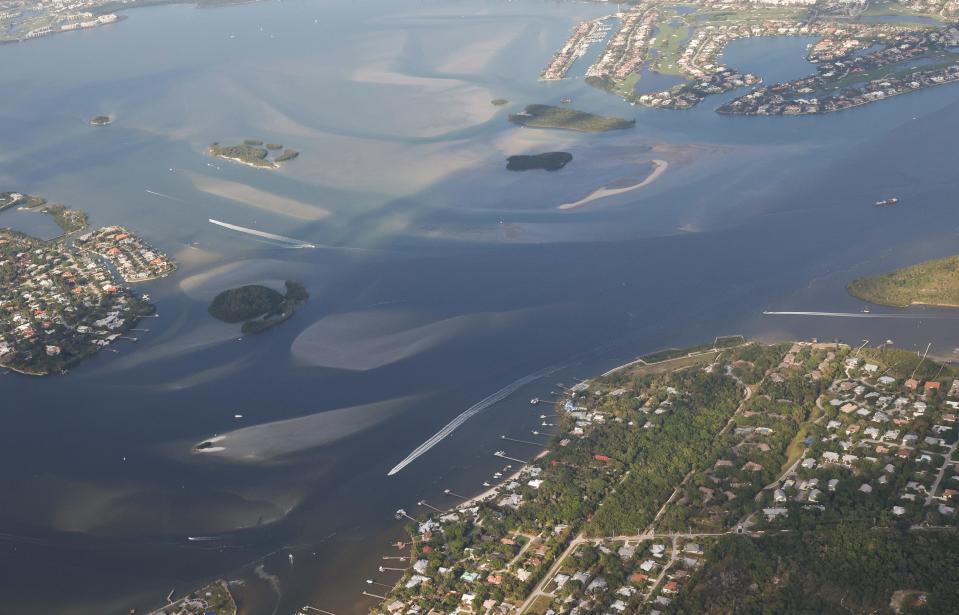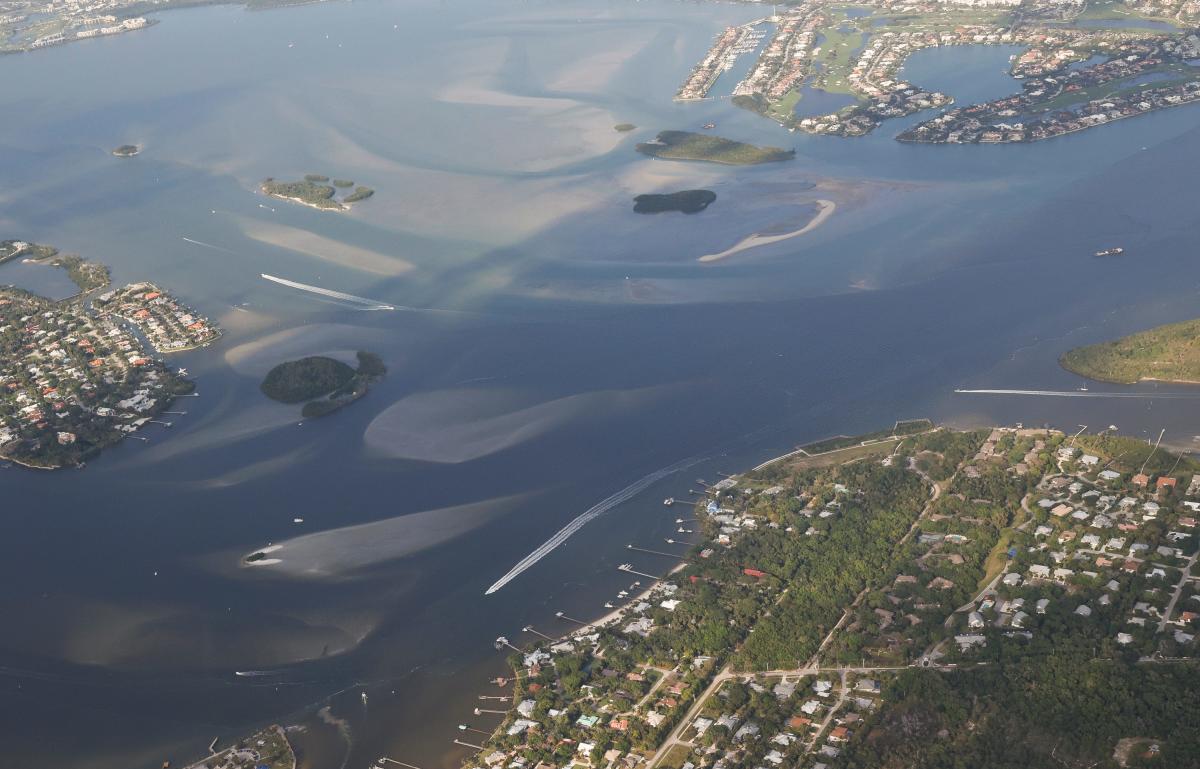Lake O discharges have been on a routine two-week pause since March 30. Discharges to both Florida coasts were necessary to lower the level of Lake O before the start of the 2024 hurricane season June 1. Over 41 days, the lake level dropped slightly more than one foot — from 16 feet 4 inches to 15 feet 3 inches.

Lake Okeechobee discharges
A total of 54.9 billion gallons of Lake O water has poured into the St. Lucie River since Feb. 17, according to Army Corps data. An additional 104.4 billion gallons has been sent west through the Caloosahatchee River.
U.S. Rep. Brian Mast of Fort Pierce urged the Army Corps to stop discharges in a March 25 letter and a March 28 news conference that preceded a meeting of the Rivers Coalition, which formed in 1998 to stop discharges. The South Florida Water Management District also recommended the Army Corps stop discharges in a March 27 letter, SFWMD Executive Director Drew Bartlett said at that Rivers Coalition meeting.
“It’s time to be done with harmful discharges,” Bartlett said.
The most recent discharges have had significant negative impacts on the estuary and the organisms living in it, said Mark Perry, executive director of the Florida Oceanographic Society in Stuart. Extended discharges can lower salinity in the normally tidal, brackish river to lower than 5 parts per thousand. Low salinity allows algae to live and spread, and kills oysters and seagrasses, the main food of manatees.
Lake O water moving west to east often carries microcystin aeruginosa — technically a cyanobacteria commonly called “blue-green algae” — into the St. Lucie (C-44) Canal and eventually into the St. Lucie River.
The Florida Department of Environmental Protection has confirmed the algae contains the microcystin toxin in five locations since March 29, some in concentrations higher than 8 parts per billion, which the Environmental Protection Agency says is harmful to people, pets and wildlife to touch, ingest or inhale:
-
St. Lucie Canal (C-44) at the 96th Street bridge: 17 parts per billion
-
St. Lucie River at Four Rivers in Palm City: 11 parts per billion
-
St. Lucie River at the Harborage: 1.4 parts per billion
-
St. Lucie River at the Palm City Bridge: 0.92 parts per billion
-
St. Lucie (C-44) Canal at the Army Corps campground: 0.6 parts per billion
Water samples collected April 1-2 at these locations showed no sign of the toxin:
-
Port Mayaca Lock and Dam at Lake Okeechobee
-
St. Lucie (C-44) Canal at the Army Corps campground
-
St. Lucie Canal (C-44) at the 96th Street bridge
-
St. Lucie River at Four Rivers in Palm City
-
St. Lucie River at the Palm City Bridge
The health department advises people to take these precautions during discharges:
-
Do not drink, swim, wade, use personal watercraft, water ski or boat in waters where there is a visible blue-green algae bloom.
-
Wash your skin and clothing with soap and water if you have contact with algae or water that’s discolored or smelly.
-
Keep pets away from the area. Water containing algae blooms are not safe for animals. Pets and livestock should have a different source of water when algae blooms are present.
-
Do not cook or clean dishes with water contaminated by algae blooms. Boiling the water will not eliminate the toxins.
-
Eating fillets from healthy fish caught in freshwater lakes experiencing blooms is safe. Rinse fish fillets with tap or bottled water, throw out the guts and cook fish well.
-
Do not eat shellfish in waters with algae blooms.
How to report algae blooms
-
DEP collects and analyzes algal bloom samples. Report algae sightings to DEP online or via its toll-free hotline at 855-305-3903.
-
Report fish kills to the Florida Fish and Wildlife Research Institute at 800-636-0511.
-
Report symptoms from exposure to an algal bloom or any aquatic toxin to the Florida Poison Information Center at 800-222-1222.
-
Contact your veterinarian if you believe your pet has become ill after consuming or having contact with water containing cyanobacteria (blue-green algae). If you have other health questions or concerns, call DOH-Martin at 772-221-4000.
Ed Killer covers the environment and fisheries issues for TCPalm. Email him at ed.killer@tcpalm.com.
This article originally appeared on Treasure Coast Newspapers: Army Corps: Lake Okeechobee releases to St. Lucie River won’t resume
